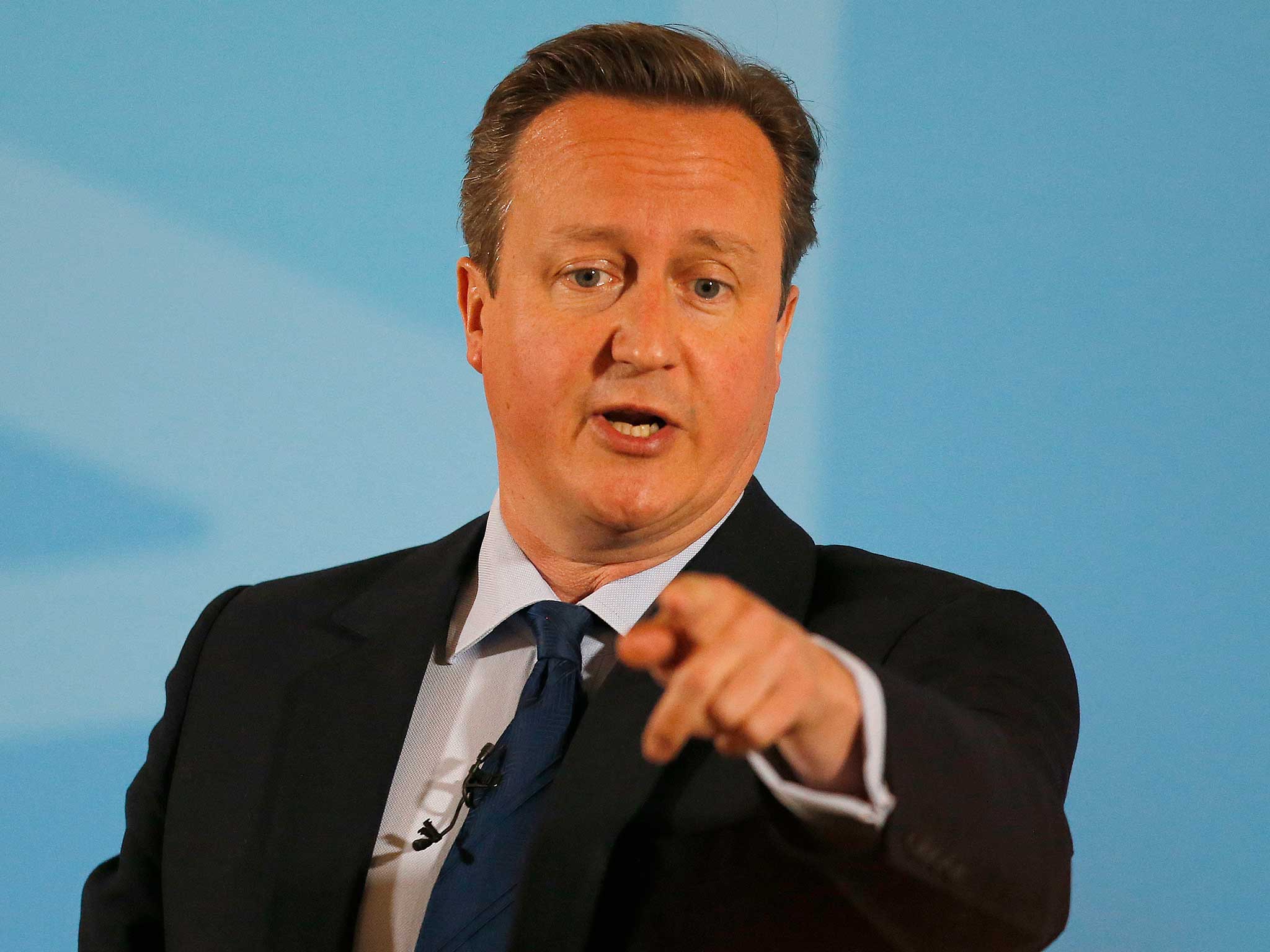Your support helps us to tell the story
From reproductive rights to climate change to Big Tech, The Independent is on the ground when the story is developing. Whether it's investigating the financials of Elon Musk's pro-Trump PAC or producing our latest documentary, 'The A Word', which shines a light on the American women fighting for reproductive rights, we know how important it is to parse out the facts from the messaging.
At such a critical moment in US history, we need reporters on the ground. Your donation allows us to keep sending journalists to speak to both sides of the story.
The Independent is trusted by Americans across the entire political spectrum. And unlike many other quality news outlets, we choose not to lock Americans out of our reporting and analysis with paywalls. We believe quality journalism should be available to everyone, paid for by those who can afford it.
Your support makes all the difference.A leading anti-extremism group has criticised the Government’s proposed Extremism Bill, arguing that its measures could make matters worse and are based on a flawed strategy.
The Bill, officially announced in the Queen’s Speech, would see people with convictions for so-called “hate speech” and other extremism related offences subject to restrictions on their employment.
But the think-tank Quilliam, which has previously worked with the Government on counter-extremism strategy, said the new laws would likely drive extreme Islamists underground and make it more difficult to challenge their narrative.
“Banning will send these groups underground and make it harder for liberals to win the battle of ideas,” a spokesman for the organisation said.
“The Queen’s Speech is part of a wider strategy seeking to legislate against danger. We cannot legislate away ideas, but we can challenge them.
“Investing in effective counter messaging and opposition groups to extremism is far more effective than banning.”
The group warned that the proposals amounted to a drift towards the “totalitarian” and that the heavy-handed approach would play into the hands of extremists who sought to exploit grievances.
“By banning extremism we play into the extremist narrative of victimhood and ‘the nanny state’. Challenge ideas, don’t ban them,” he said.
“We can't let ourselves become totalitarian whilst trying to protect ourselves from the very same ideology.”
The warning comes just months after it emerged the orgnisation’s chair, Maajid Nawaz, had been included on a sweeping database of “terrorism”-designated individuals.
Mr Nawaz, a noted counter-terrorism advisor to all UK PMs since Gordon Brown, held up his inclusion on the “inaccurate, bigoted garbage” database as evidence of poor policymaking around counter-extremism.
The latest extremism bill announcement comes a day after the Commissioner for Human Rights at the Council of Europe warned the Government’s Prevent counter-extremism strategy could also be counterproductive.
Nils Muižnieks said in a memorandum that Prevent “runs the risk of isolating the very communities whose cooperation is most needed to fight violent extremism”.
“Reinforcing community support and gaining the confidence of communities should be the government’s priority,” he added.
In a response, the Government said Prevent did “challenging but absolutely necessary work”.

Join our commenting forum
Join thought-provoking conversations, follow other Independent readers and see their replies
Comments